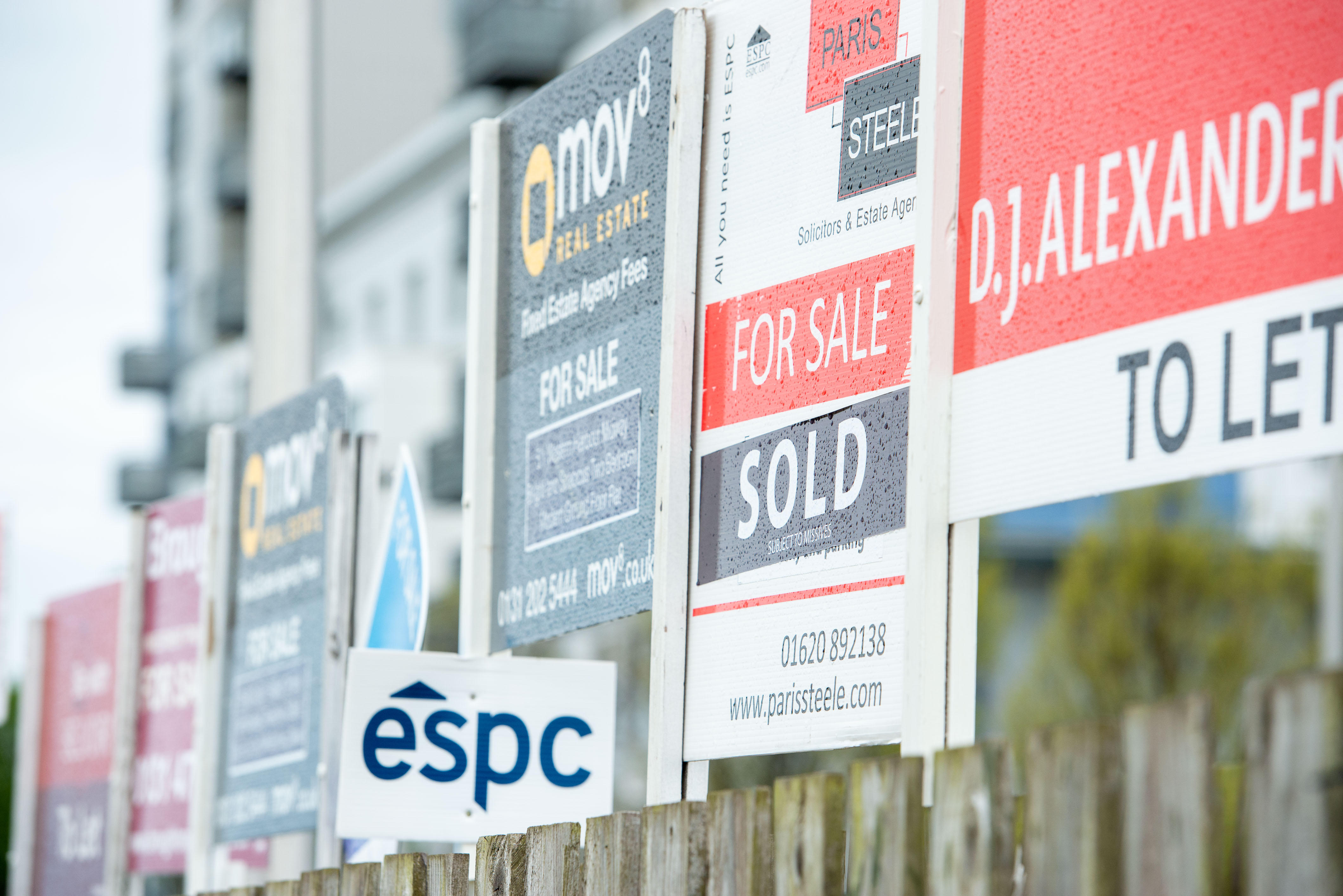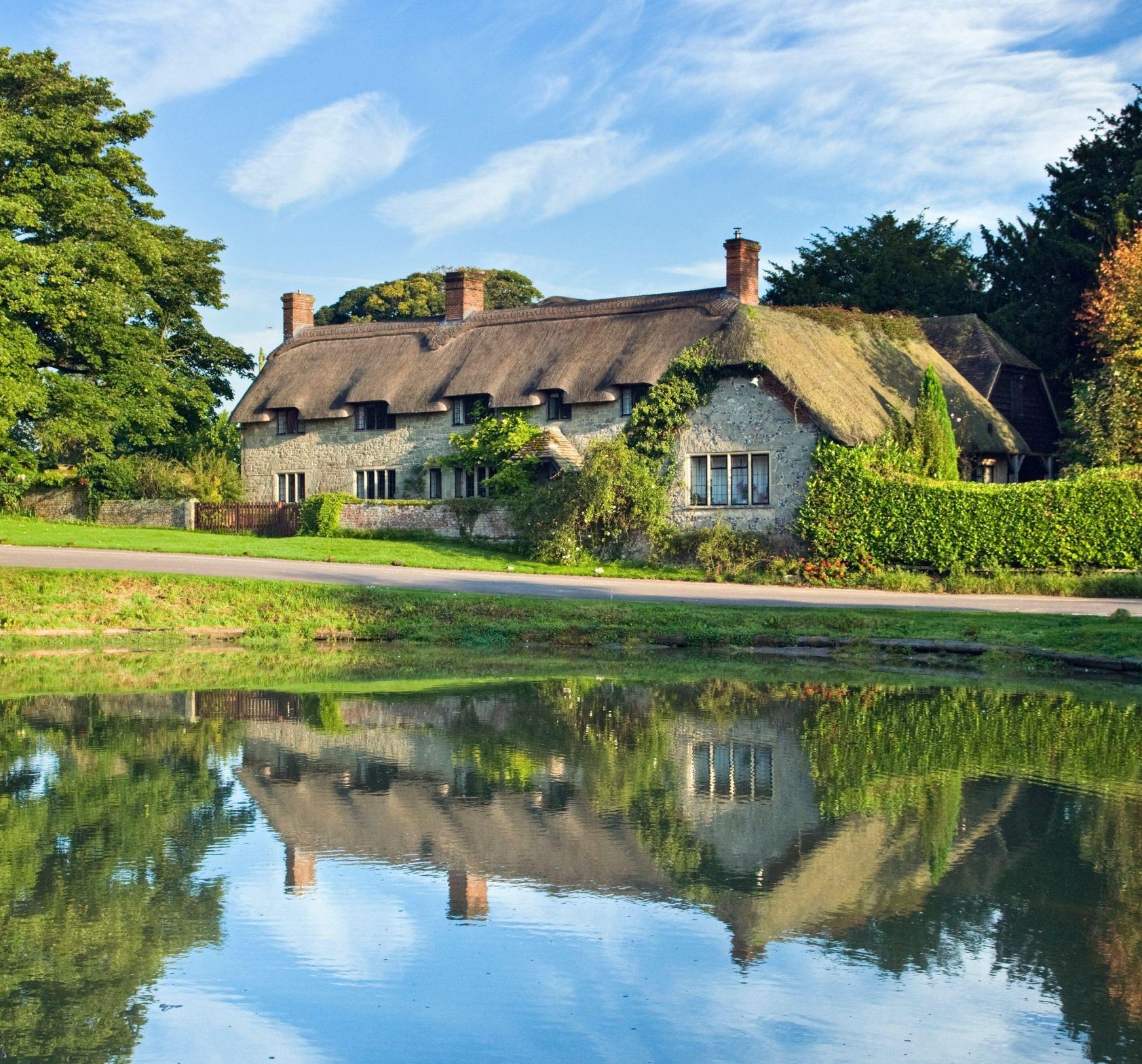Property Talk: 'A soft landing is still possible for the housing market'... but is it likely?
The latest data all point in one direction for house prices, but will we see a cliff-edge drop as we've witnessed in the past? Annabel Dixon takes a look as she analyses the latest news and views from the property market.


Exquisite houses, the beauty of Nature, and how to get the most from your life, straight to your inbox.
You are now subscribed
Your newsletter sign-up was successful
The property market's numbers are in for October, and the fresh batch of figures has painted a gloomy picture of the housing market.
The sources of data were different, but the headline themes were the same: falling house prices. First, Nationwide revealed a 0.9% drop in house prices in October. Next up, Halifax reported a 0.4% decline in prices last month.
Then came Royal Institute of Chartered Surveyors (RICS) monthly survey, another important temperature check of the housing market. It suggested that house price growth is ‘grinding to a halt’, while buyer demand fell for the sixth month running.
October was ‘undoubtedly a bad month for the UK property market’, says Tom Bill, head of UK residential research at Knight Frank.
This may not come as a huge surprise. The signs have been there for a while: the increasing cost of living and rising interest rates to name a couple. The decisions made months ago are filtering through into housing market data.
So where are we on that rollercoaster we’ve talked about before at Property talk? Do we need to brace ourselves for the next stretch of the ride? The impact of the sharp increase in rates following September’s mini-Budget is not likely to be fully reflected in house prices yet.
‘After growth of 25% during the pandemic, we believe it’s a reasonable assumption that house prices have now peaked,’ says Bill. ‘We don’t expect the sort of cliff-edge moment seen during the financial crisis.’ And thank goodness for that.
Exquisite houses, the beauty of Nature, and how to get the most from your life, straight to your inbox.
While house price predictions naturally do vary, the general consensus seems to be that a downward trend is on the cards for 2023.
Nationwide’s chief economist, Robert Gardner, doesn’t beat around the bush: ‘The outlook is extremely uncertain, and much will depend on how the broader economy performs, but a relatively soft landing is still possible.'
Good on Gardner for his honesty, since it's rare to hear someone hedge their bets so unashamedly. The words 'extremely', 'relatively' and 'possible' don't so much leave wiggle room as they leave room to spin around freely until more data arrives in the coming months.
For now, after recent political turmoil, a new government is settling in with Rishi Sunak at the helm. Meanwhile, financial markets appear to be calming and this ‘could provide some relief although it may be premature to assume this will be reflected in a reduction in lending rates anytime soon,’ says RICS chief economist, Simon Rubinsohn.
Unemployment is historically low too, though only when taking active job seekers into account; millions of people have left the workforce in the last two years, and overall employment is still below pre-pandemic levels — something which is part of the Bank of England's alarm on the economy. How this plays out is likely to be an important factor in what happens to house prices in future.
Next though? Let’s see what the Autumn Statement brings in a few days’ time.

Credit: Alamy
Property Talk: What the Bank of England's interest rate rise means for the property market
The worst-kept secret in the world of finance was revealed on Thursday as the Bank of England raised interest rates

Credit: Ian Georgeson / Alamy Stock Photo
Property Talk: 1980s nostalgia is great... but not when it's about the property market
A dose of 1980s cultural nostalgia is always welcome, but economic nostalgia? No thanks. Inflation and interest rates are heading

Property talk: 'Developments are beginning to be reflected in data... We are seeing a slowdown'
The latest news from the property market strongly suggests house prices have now tailed off — but where do they go

Credit: Getty Images
What's next for house prices? Loss of momentum, discounts — and it's only just begun
Six months on from Liz Truss's disastrous stint as prime minister, the fallout is still being felt in the property

Property Talk: Will the 'storm clouds' in the property market be blown away by a new resident at 11 Downing Street?
A downbeat prognosis from the nation's chartered surveyors, a new Chancellor of the Exchequer, and a government walking back several

